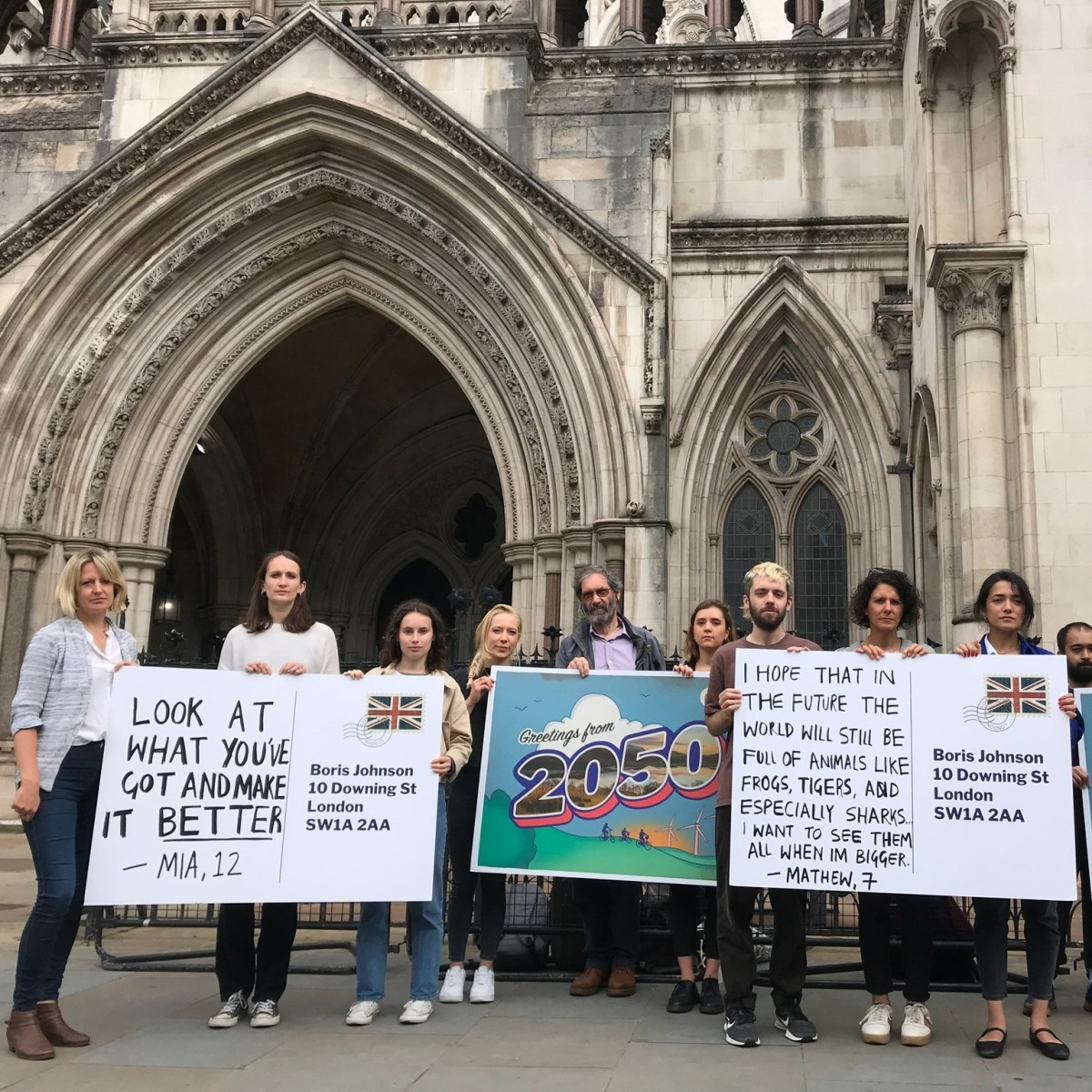Three organisations are taking the government to the High Court this morning alleging that the UK climate plan is weak and inadequate.

This is the second time Friends of the Earth, ClientEarth and Good Law Project have taken legal action over the government’s plan for meeting legally-binding climate targets. (DrillOrDrop reports of the first case here and here)
They won their case in 2022 and the High Court ruled that the government’s climate action plan breached the Climate Change Act.
The court ordered the government to rewrite the strategy. But the three organisations will argue this week that the revised strategy – the March 2023 Carbon Budget Delivery Plan – is inadequate and also in breach of the Climate Change Act.
Their cases focus on three key arguments:
Lack of information
The plan has no information on the government’s assessment of the risk that many key policies will not deliver the cuts needed to meet legally-binding climate targets. Friends of the Earth and Client Earth will say the Secretary of State lacked enough information about the level of risk in the plan to adopt it lawfully.
Vague information
Where the plan does include information, the organisations argue it suggests that many technologies relied on to make substantial emissions savings are high risk. Many of the proposals are vague and uncertain, the organisations will argue. This raises questions about government assumptions that cuts in emissions will be delivered in full, they say. ClientEarth will say this approach is flawed, unlawful and fails to comply with the Climate Change Act.
In the dark
The public and parliament have been kept in the dark, the organisations will say, because the plan contains insufficient information on risk to the delivery of the policies. Ministers have refused to publish the risk tables for the policies, despite legal pressure from the Good Law Project over the past eight months. Once the risk tables are mentioned in court, they can and will be published, unless the government applies for a court order to try to keep them secret.
Friends of the Earth will also argue that the plan seriously jeopardises the UK’s ability to meet its international commitment to cut emissions by two thirds by 2030, and will therefore negatively impact future generations, and undermine sustainable development.
The Climate Change Committee, the government’s independent adviser on climate, found in June last year that there were credible plans for less than a fifth of the emissions cuts needed to meet the UK’s Sixth Carbon Budget, which starts in 2033.
Since the Carbon Budget Delivery Plan was published, the government announced delays to the ban on sale of new petrol and diesel cars and gas boilers. It also announced plans for more than 100 new offshore oil and gas licences.
Friends of the Earth lawyer, Katie de Kauwe, said today:
“We believe the government’s revised climate action plan is a complete pipe dream.
“It lacks critical information on the very real risks that its policies will fail to deliver the cuts needed to meet legally binding carbon reduction targets and relies too heavily on unproven technologies.
“The government ought to just come clean that this is a reckless, high-risk plan, and should come up with a credible and lawful strategy that ensures all our climate targets are met – including our international pledge to cut emissions by two thirds by 2030.
“Climate action is not only good for the planet, it’s essential for creating new jobs and business opportunities, boosting energy security and reducing our reliance on costly fossil fuels.”
ClientEarth lawyer, Sam Hunter Jones, said:
“The UK government continues to rely on pie-in-the-sky measures to address a crisis that needs real, immediate action – an approach the UK’s flagship law the Climate Change Act was designed to prevent.
“Instead of plugging the gaps identified by their own expert advisors, ministers are standing behind a strategy that is riddled with policy holes and reliance on risky techno-fixes.
“This approach flies in the face of key legal requirements and puts the UK well off track from meeting its legally binding commitments, which is why we’re back in court.”
Legal Director of Good Law Project, Emma Dearnaley, said:
“The government has admitted to us that, on its own assessments, its net zero plan is fraught with risks. Many of its flagship policies could fail to be achieved by the legally-binding deadlines, yet ministers are stubbornly keeping vital information under lock and key to save embarrassment.
“With so much at stake for our planet and our economy, that needs to change. The sooner we can see what the risks are, the sooner the government will have to face up to the shortcomings in its net zero strategy and take action to fix them. So as soon as the risk tables are mentioned in court, we plan to publish them for all to see.”
The case is expected to run for three days (February 20-22) at the Royal Courts of Justice in the Strand, London.
DrillOrDrop has closed the comments section on this and future articles. We are doing this because of the risk of liability for copyright infringement in comments. We still want to hear about your reaction to DrillOrDrop articles. You can contact us by clicking here.
Categories: slider
